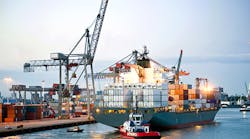Almost everyone in the world is a “free marketeer” these days, or likes to think that he or she is one. Except for a few exceptions that prove the rule (Cuba, North Korea, Venezuela), the world’s governments have acknowledged the supremacy of marketbased economics, and appreciate the wealth and prosperity that markets generate.
Of course, this wasn’t always true. While it’s not much reflected on lately, we’re less than 20 years past the time when powerful, resource-rich nations defied “the truth” of free markets by enforcing and propagating an alternative economic theory based on force: forced labor, forced production quotas, forced shortages, and ultimately forced values. The contrast between those regimes and free-market economies was complete.
“Truth” is on the side of the latter because free markets don’t define value according to any one person or specific human philosophy. Humans are imperfect, but markets are their collective, subconscious truth-seeking genius at work. Markets composite all known facts — supply, demand — into values, allowing individuals to make choices according to their own tastes or circumstances.
In theory, there is an unbreakable bond between free markets and free people, but in practice the bond gets battered, abused, and ignored frequently. Even in free market democracies there is an impulse to control events or outcomes. (Some enlightening insights to a relevant aspect of this are offered by Raymond Monroe of the Steel Founders Society of America, starting on p. 38.)
In the old days of force versus freedom, the bad guys were called Marxists, and their term for rest of us was “capitalists.” We accepted that label, and still use it today, but it tends to emphasize the preeminence of money (“capital”) to our principles, when in fact our guiding light is, or ought to be, “freedom.”
In an ironic development, Russia and China have become great centers of “capitalism” in just the way the old Marxists meant it: overflowing with wealth and insatiable in their drive for power. Russia, rich in natural resources, menaces the rest of the world with its wealth and influence. Autocrats rule the government, grabbing private assets without apology, and a new class of aristocrats flaunt their assets and power over an intimidated public.
China’s wealth and influence have come by virtue of its size and the efforts of low-paid laborers. This could have happened decades sooner but for the ruling class’s devotion to false ideals. Now, the rest of the world longs for a bit of access to that vast market (still not free), while China’s citizens long for the personal freedom that will validate their material advancement.
We may still look at Russia and China and feel better about our respect for individual freedom, but it’s not so clear.
There is a term — “moral hazard” — that describes the risk of violating the freedom of markets and/or people. It refers to the unintended consequences that follow when governments (via regulatory agencies, government-backed corporations, etc.) try use their authority to prolong a boom cycle or blunt a decline. So far this year we’ve seen an investment bank bailed out, “free” money mailed out, and worthless home loans “guaranteed.” All of this reflects more efforts by governments to secure results that are more tolerable than what the free market would deliver. They are institutional abuses of freedom by any definition.
As capitalists, we need to return our focus to freedom, not wealth. We appreciate the benefits of free markets, but we panic at the consequences. If we value freedom and object to the abuses of it by others, we must avoid our own hazards, too.
Metalcasters are fortunate to have a vital cohort of free marketeers working for them. Members of the Casting Industry Suppliers Assn. support the progress, success, and prosperity of foundries and diecasters, and it’s our privilege to use this issue of FM&T to promote these companies and their numerous achievements.










